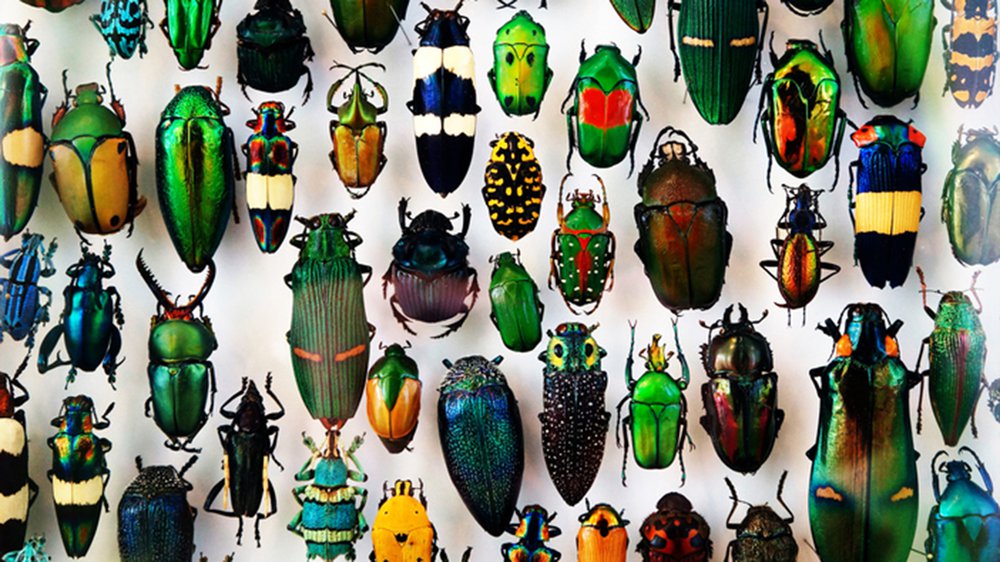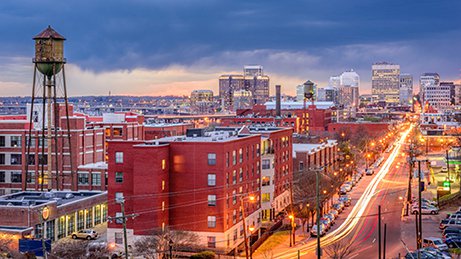Question Your World: Are Our Lights Harming Insects?
While both science and Ray Charles have taught us that the nighttime IS the right time to be with the one you love, there’s still something about nighttime that’s bugging scientists. This week's story is pretty fascinating. Driving at night is a lot safer with our streetlights and we seem to love having our well-lit urban cores for last call, but light pollution is starting to concern scientists. Are our lights harming insects?
Recently researchers noticed a very jarring problem when studying some insect populations. In fact, they noticed that in the last almost three decades, the total biomass of flying insects has dropped by over 75%!
For some folks, bugs are certainly a nuisance, but clearly, their benefits outweigh the backyard party inconvenience. Sure, there are some that cause serious problems, but by and large, our insect friends are working throughout their lives in the ecosystem ball and chain just like the rest of us. In fact, another huge problem here is about human impacts to pollinators, but you'll have to go through these blogs to learn more about that. The point is losing our bugs is a big problem for everyone and deserves proper attention. So, with that said, back to light pollution!

Image credit: Getty Images
Scientists noticed regions experiencing this decline also happen to have very high levels of light pollution. A quick look at our planet from space will show how the dark parts light up at dense human gatherings. Fewer and fewer places on this global map remain dark as our population and habitations continue to rise. The insects that we are talking about have all evolved for millions of years without artificial light. Their survival strategies, mating rituals, migration routes, and many more life events are determined by the exact amount of day and nighttime light in which they evolved. Our blue and increasingly golden glowing planet is quite different from the dark world where these insects evolved. So, naturally - or artificially - these lights are causing a problem.
To better understand why some bright lights are causing such a big problem, let's examine some bug facts here. For starters, half of all insects are nocturnal and rely on very specific levels of night/day light to orient themselves and for a myriad of their daily life goings-on. Furthermore, flying insects are attracted to artificial light which removes them from their ecosystem and away from mates, opens them to becoming prey, and could even could cause death by exhaustion as those little wings attempt to flap big distances towards city lights!

Image credit: Getty Images
Actually, insects are not the only things that have felt the stress of light pollution. Scientific research on birds, mammals, fish, and even humans has many examples of how our excessive lighting is negatively impacting life on Earth.
Okay, bummer, but what can we do? First of all, we can make sure that our yards and houses are not further putting unnecessary light into our direct areas. While there is a need for lights, let them shine, but after they are no longer serving a purpose, let them rest. This will also help cut down on your power bill. Bonus!
Also, citizens are encouraged to have conversations with city planners and developers about the setup of future street lights, parking lots, and so on! Consider for a moment the number of lights that you see turned on throughout the night on your drive back from late meetings, parties, or whatever. Had some light-conscious community dialogue taken place before these construction plans were rolled out, who knows, we may have been able to plan surrounding ecosystem needs into the development plans. These dialogues are not rare for topics like blocking views, expanding roadways, or commercial development. Light concerns could easily be a part of those dialogues as well, as they both improve the surrounding ecosystems and lower costs due to decreased electricity usage.
We know these insects are vital to our ecosystems and even our planet’s agricultural output, so hopefully, with enough science and community dialogue, local planners and developers will finally see the light ... or rather turn it off … you know what we mean.


